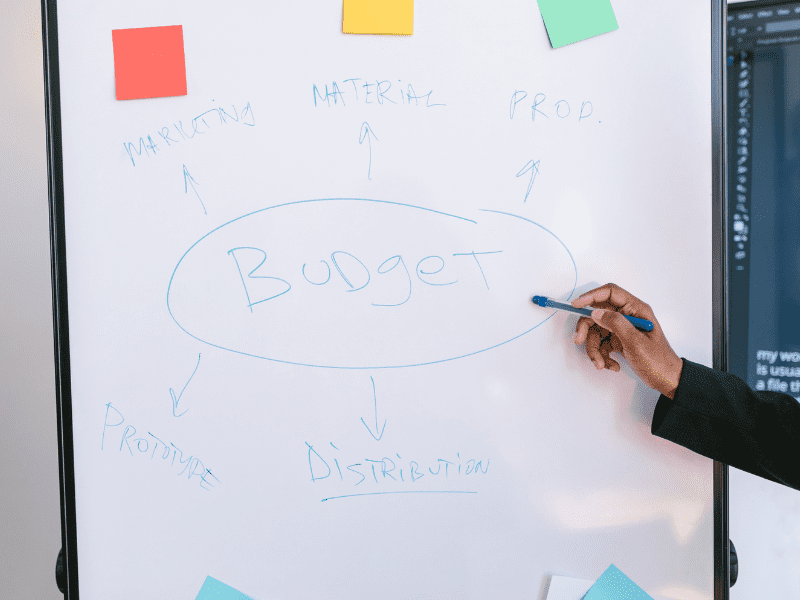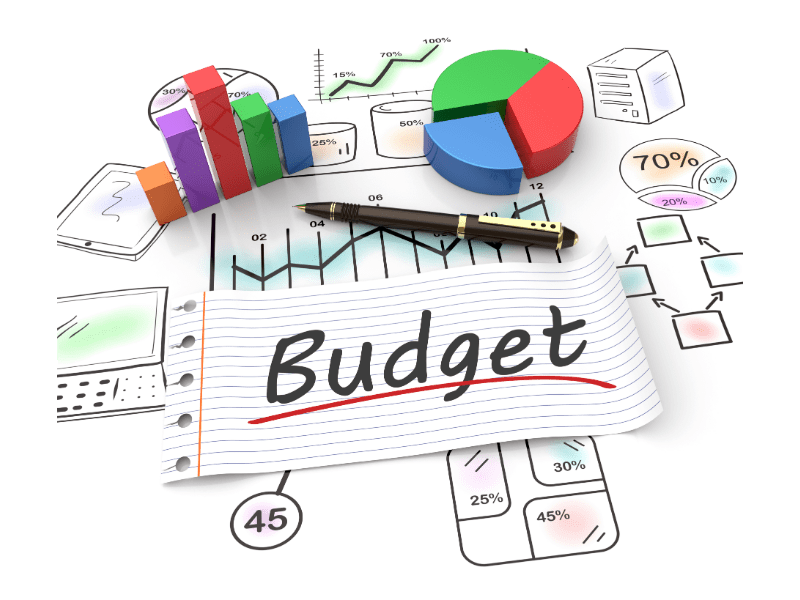The Importance of Budgeting for Financial Succes
In today’s fast-paced world, achieving financial success is a goal that many individuals strive for. Whether it’s saving for a dream vacation, purchasing a new home, or planning for retirement, having control over our finances is essential. And at the heart of this control lies budgeting.
Budgeting tips is more than just tracking expenses and income; it is a strategic tool that empowers individuals to make informed financial decisions and work towards their goals. In this section, we will explore the importance of budgeting for financial success and provide valuable tips on how to effectively manage your personal finances.
One of the key reasons why budgeting plays such a crucial role in achieving financial success is that it helps individuals set clear financial goals. By creating a budget, you gain a comprehensive understanding of your income and expenses, allowing you to identify areas where you can cut back or save more. This knowledge enables you to allocate your resources in line with your priorities and take proactive steps towards reaching your desired milestones.
Moreover, effective budget management provides a sense of control over your finances. Instead of feeling overwhelmed or uncertain about where your money goes each month, having a well-planned budget gives you confidence in managing your expenses and making sound financial choices. It allows you to stay on track with bill payments, avoid unnecessary debt, and build up savings for emergencies or future investments.

Furthermore, budgeting serves as an essential tool for monitoring progress towards your financial goals. By regularly reviewing your budget and tracking expenses against the planned allocation, you can identify any deviations or areas where adjustments may be needed. This level of awareness helps you stay accountable to yourself and make necessary course corrections if required.
The budgeting is not just about restricting spending; it is about empowering yourself with knowledge and control over your personal finances. By setting clear goals, managing expenses effectively, and monitoring progress along the way, you pave the path towards long-term financial success. In the upcoming sections, we will delve deeper into budgeting tips and strategies that will help you achieve your financial goals.
Table of Contents
Step-by-Step Guide: How to Make a Budget That Works for You
Creating a budget plan that works for you is an essential step towards achieving your financial goals. By implementing effective budgeting strategies, you can take control of your finances and make informed decisions about your spending habits.
To start, it is important to identify and categorize your expenses. This will help you understand where your money is going and where adjustments can be made. Common budget categories include housing, transportation, groceries, utilities, entertainment, and savings.
Once you have determined your budget categories, it’s time to track your expenses. This can be done through various methods such as using a spreadsheet or utilizing budgeting apps that automatically sync with your bank accounts. Tracking expenses allows you to see where you may be overspending or where there are opportunities to save.
Setting financial goals is another crucial aspect of creating a successful budget plan. Whether it’s saving for a down payment on a house or paying off debt, having clear objectives will provide motivation and direction in managing your finances.
Remember that creating a budget plan is not a one-time task but an ongoing process. Regularly review and adjust your budget as needed to ensure it remains aligned with changing circumstances and priorities.
By following this step-by-step guide and implementing these strategies into your financial routine, you can make a budget that truly works for you – helping you achieve financial stability and reach those long-term goals. of yours. Let’s dive deeper into each steps
Step:1. Identify and categorize your expenses: Start by listing all your regular expenses and categorizing them into different budget categories such as housing, transportation, groceries, utilities, entertainment, and savings. This will give you a clear picture of where your money is going.
Step: 2. Track your expenses: Use a spreadsheet or budgeting apps that sync with your bank accounts to track your expenses on a regular basis. This will help you see where you may be overspending or where there are opportunities to save.
Step: 3. Set financial goals: Determine what you want to achieve financially, whether it’s saving for a down payment on a house, paying off debt, or building an emergency fund. Setting clear objectives will provide motivation and guide your financial decisions.
Step: 4. Create a budget plan: Based on the information gathered from steps 1-3, create a realistic budget plan that aligns with your income and financial goals. Allocate money to each category while ensuring that you have enough for both necessities and discretionary spending.
Step: 5. Review and adjust regularly: Remember that creating a budget plan is an ongoing process. Regularly review how well you’re sticking to the plan and adjust as needed based on changing circumstances or priorities.
Step: 6. Stay disciplined: Stick to the budget plan as much as possible but also allow room for flexibility when unexpected expenses arise.
Step: 7. Seek support if needed: If managing finances feels overwhelming or if you need guidance along the way, consider seeking support from financial advisors or using online resources that provide helpful tips and tools.
By following these steps and implementing effective strategies into your daily routine, you can create a budget plan that truly works for you – helping you achieve financial stability while working towards long-term goals.
Budgeting Tips for Effective Expense Management and Savings

In today’s fast-paced world, effective expense management and savings have become more important than ever. With the rising cost of living, it is essential to adopt budgeting tips that can help us save money and achieve our financial goals.
One of the key saving money tips is to embrace frugal living. This means being mindful of our spending habits and making conscious choices to cut unnecessary costs. By evaluating our needs versus wants, we can identify areas where we can make adjustments without sacrificing our quality of life.
Expense tracking techniques play a vital role in effective budgeting. By keeping a record of every expenditure, whether big or small, we gain valuable insights into our spending patterns. This enables us to identify areas where we may be overspending and make necessary adjustments to stay within our budget.
Cutting unnecessary costs is another crucial aspect of expense management. It involves critically examining our expenses and identifying areas where we can make savings without compromising on essential needs. This could include reducing dining out expenses, finding cheaper alternatives for everyday items, or negotiating better deals with service providers.
By implementing these budgeting tips for effective expense management and savings, we take control of our financial well-being. It allows us to allocate resources wisely, prioritize savings goals, and ultimately achieve greater financial stability and peace of mind.
The Role of Automation and Technology in Simplifying Budget Management
In today’s fast-paced world, managing our finances can often feel overwhelming. However, with the advent of automation and technology, budget management has become simpler and more efficient than ever before.
Budgeting apps and tools have revolutionized the way we track our expenses and income. These user-friendly applications allow us to effortlessly monitor our financial transactions, categorize expenses, and set budget goals. With just a few taps on our smartphones, we can gain a clear understanding of where our money is going and make informed financial decisions.
Online budget trackers provide real-time updates on our spending habits, giving us a comprehensive overview of our financial health at any given moment. By syncing with bank accounts and credit cards, these trackers automatically record transactions and organize them into customizable categories. This eliminates the need for manual data entry or sifting through piles of receipts.
One of the most significant advantages of automation in budget management is the ability to automate bill payments and savings contributions. By setting up automatic payments for recurring bills such as utilities or subscriptions, we can ensure that they are paid on time without having to worry about missed deadlines or late fees. Similarly, automated savings contributions allow us to effortlessly grow our nest egg by automatically transferring funds into designated savings accounts or investment portfolios.
The role of automation and technology in simplifying budget management cannot be overstated. These innovative tools not only save us time but also provide valuable insights into our financial habits. By leveraging these resources effectively, we can take control of our finances with ease and achieve greater peace of mind when it comes to managing our budgets.
Strategies to Stay Motivated and Maintain Long-term Budget Success
Staying motivated and maintaining long-term budget success can be challenging, but with the right strategies in place, it is definitely achievable. One of the key strategies is effective financial goal setting. By setting clear and realistic goals, you give yourself something to strive towards and a sense of purpose in your budgeting journey.
Another important strategy is celebrating milestones along the way. It’s important to acknowledge and reward yourself for small victories as you progress towards your financial goals. This not only boosts your motivation but also reinforces positive financial habits.
Additionally, it’s crucial to be flexible and adjust your budget as needed. Life circumstances change, unexpected expenses arise, and priorities shift over time. By regularly reviewing and adjusting your budget to align with your current needs and goals, you ensure that it remains relevant and effective in helping you achieve long-term financial success.
By implementing these strategies, you can stay motivated on your budgeting journey while maintaining a successful financial trajectory for the long term.
Take Control of Your Finances with Effective Budgeting Techniques
In conclusion, effective budgeting techniques are essential for taking control of your finances and achieving your financial goals. By developing strong budget management skills, you can make informed decisions about your spending, saving, and investing.
Budgeting habits allow you to track your income and expenses, identify areas where you can cut back or save more, and prioritize your financial goals. Whether it’s paying off debt, saving for a down payment on a house, or planning for retirement, a well-executed budget can help you stay on track and make progress towards these milestones.
Furthermore, effective budgeting techniques empower you to make conscious choices about how you allocate your resources. It allows you to differentiate between needs and wants, avoid unnecessary debt or overspending, and build a solid foundation for long-term financial stability.
By implementing these budgeting habits into your daily life, you can take control of your finances and create a brighter future for yourself. Remember that it takes discipline and commitment to maintain effective budgeting practices consistently. However, the rewards of financial freedom and peace of mind are well worth the effort.
Start today by assessing your current financial situation, setting realistic goals, tracking your expenses diligently, making adjustments as needed along the way. With time and persistence in practicing effective budgeting techniques will lead you towards achieving financial success.
Frequently Asked Questions About Budgeting Tips
What are the essential budgeting tips for beginners?
Essential budgeting tips for beginners include tracking expenses, setting clear financial goals, creating a monthly budget, and staying disciplined with spending.
How can I create a monthly budget as a beginner?
To create a monthly budget as a beginner, calculate your income, list expenses, set financial goals, allocate funds, and monitor your spending regularly.
What are the common mistakes to avoid when budgeting for the first time?
Common budgeting mistakes to avoid include not tracking expenses, setting unrealistic goals, and neglecting an emergency fund.
Can you recommend any budgeting apps or tools for beginners?
Recommended budgeting apps/tools for beginners include Mint, YNAB, and Personal Capital, which help track finances and manage budgets effectively.


10 thoughts on “Budgeting Tips for Beginners: A Comprehensive Guide in 2024”